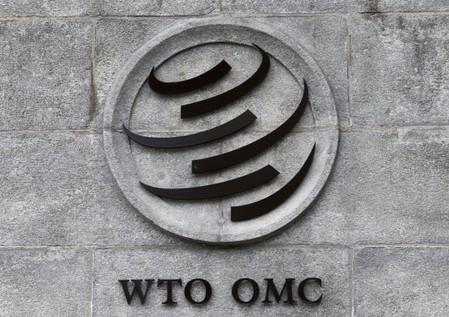China has lodged a complaint against the United States at the World Trade Organization over U.S. import duties, the Chinese Commerce Ministry said on Monday.
The United States began imposing 15% tariffs on a variety of Chinese goods on Sunday and China began imposing new duties on U.S. crude oil, the latest escalation in their trade war.
China did not release details of its legal case but said the U.S. tariffs affected $300 billion of Chinese exports.
The latest tariff actions violated the consensus reached by leaders of China and the United States in a meeting in Osaka, the Commerce Ministry said in the statement. China will defend its legal rights in accordance with WTO rules, it said.
The lawsuit is the third Beijing has brought to challenge U.S. President Donald Trump’s China-specific tariffs at the WTO, the international organization that limits the tariffs each country is allowed to charge.
U.S. officials say that they are penalizing China for theft of intellectual property that is not covered by WTO rules, although many trade experts say that any tariff hike above the allowed maximum must be justified at the WTO.
Many experts also decry China’s decision to fight fire with fire, by imposing tariffs on U.S. goods imported into China, also without the WTO’s approval.
On Friday the United States published a written defense in the first of the three legal cases, asserting that China and the United States agreed the issue should not be judged at the WTO.
“China has taken the unilateral decision to adopt aggressive industrial policy measures to steal or otherwise unfairly acquire the technology of its trading partners; the United States has adopted tariff measures to try to obtain the elimination of China’s unfair and distortive technology-transfer policies,” it said.
China had chosen to respond not by addressing U.S. concerns but with its own tariffs, “in an effort to maintain its unfair policies indefinitely”.
The U.S. submission also said its actions were exempt from WTO rules because they were “measures necessary to protect public morals” – a clause used in the past to argue for trade restrictions over gambling, animal rights and public broadcasting.
Under WTO rules, Washington has 60 days to try to settle the latest dispute. Then China could ask the WTO to adjudicate, a process that would take several years. It could end with China gaining WTO approval to take trade sanctions, if the United States is found to have broken the rules.







